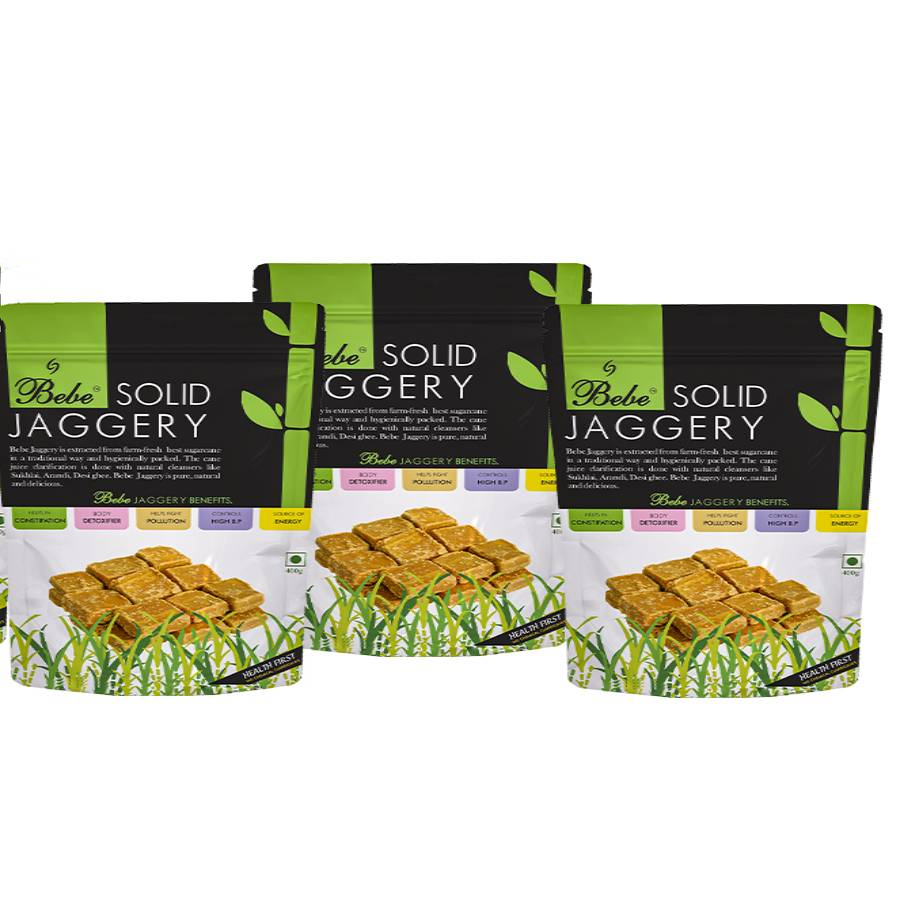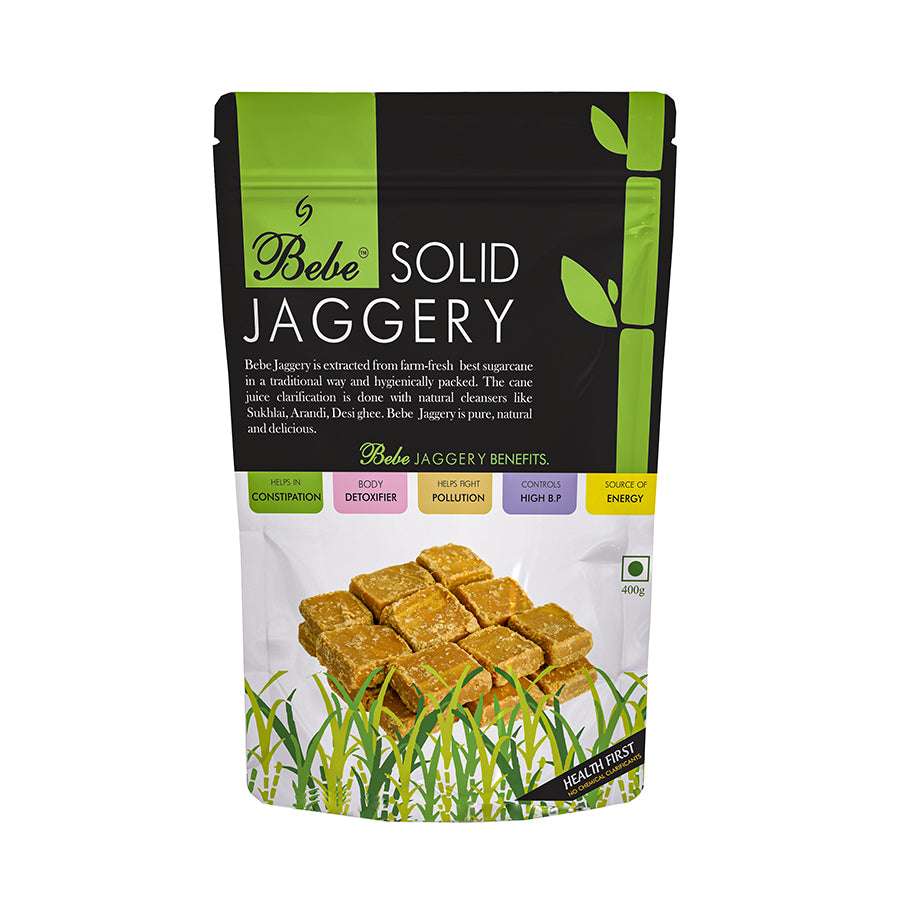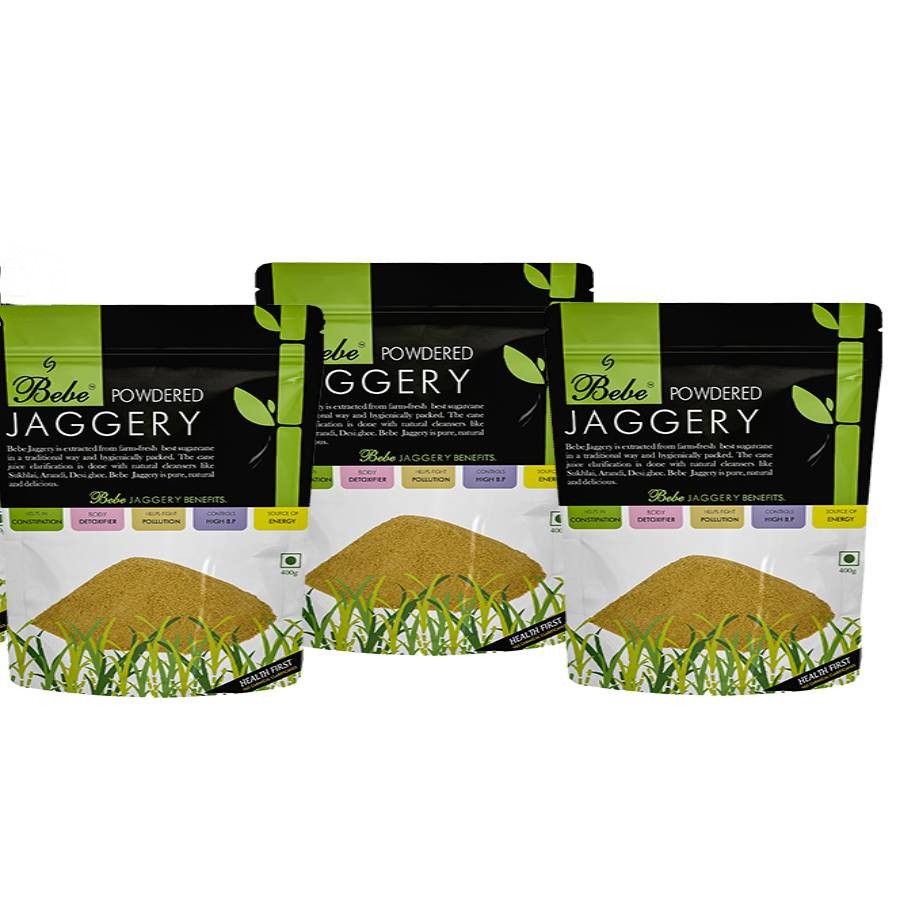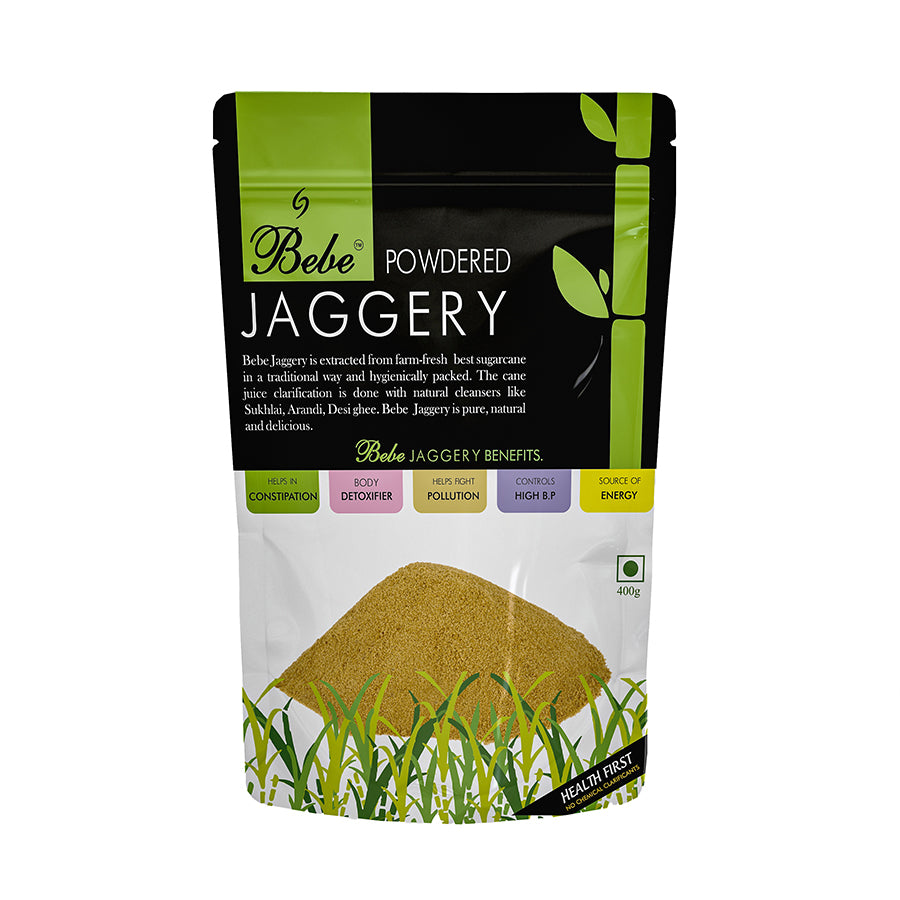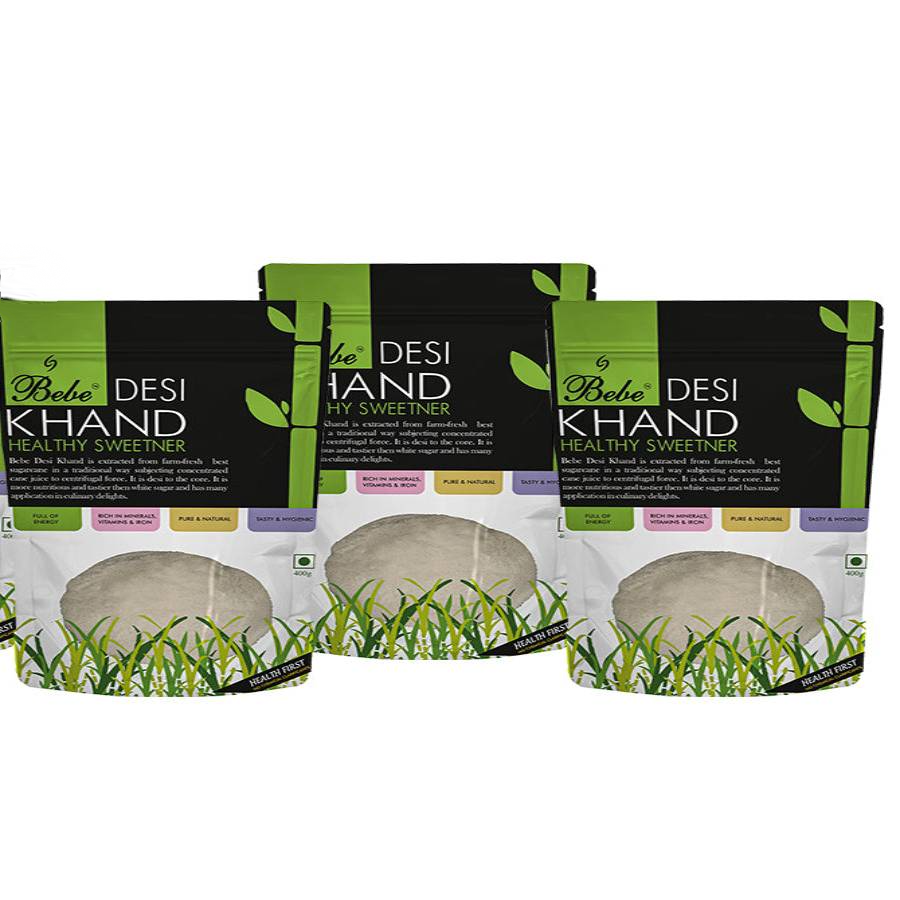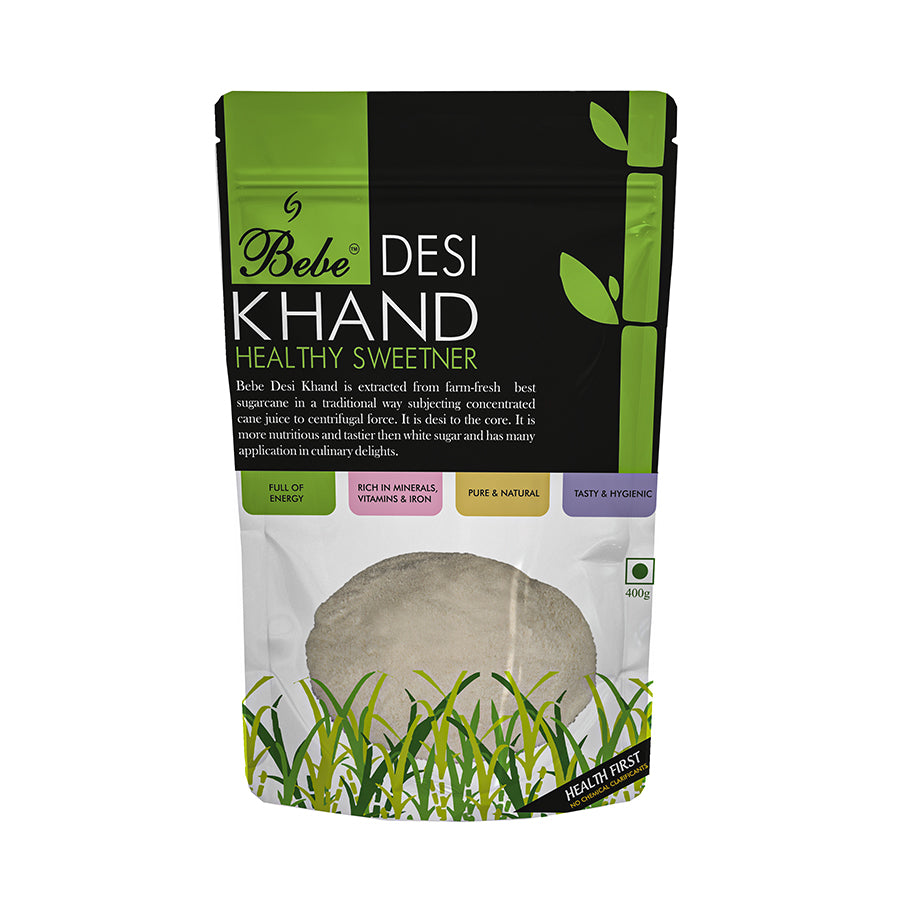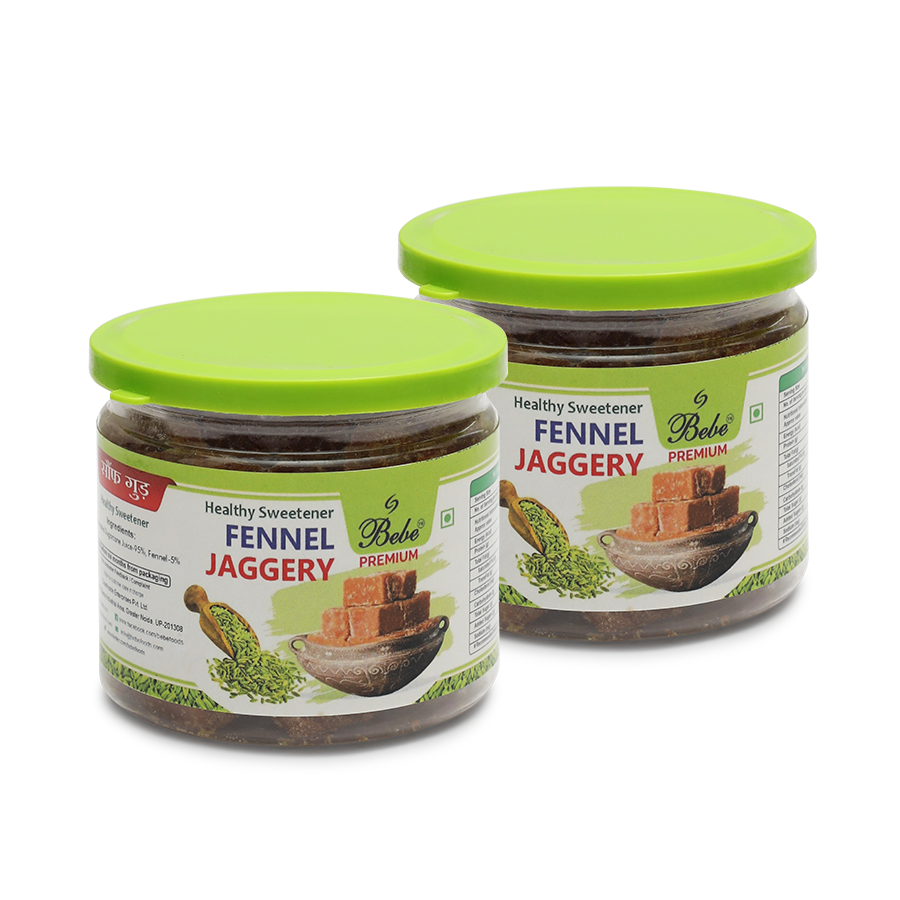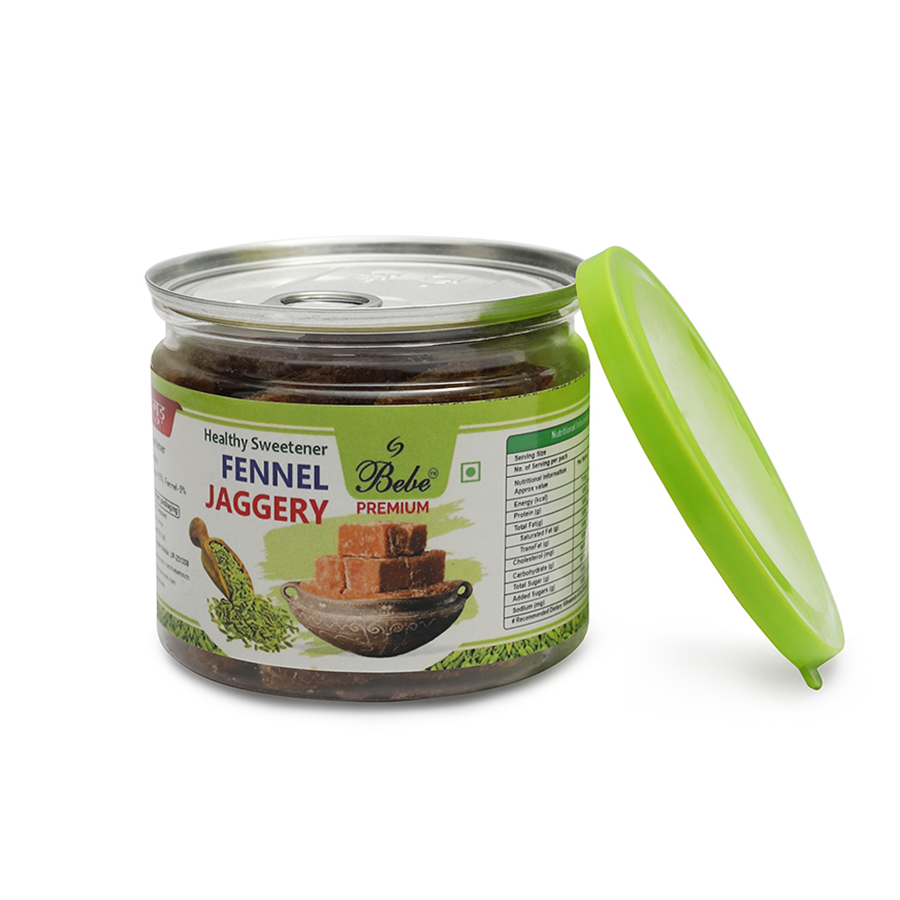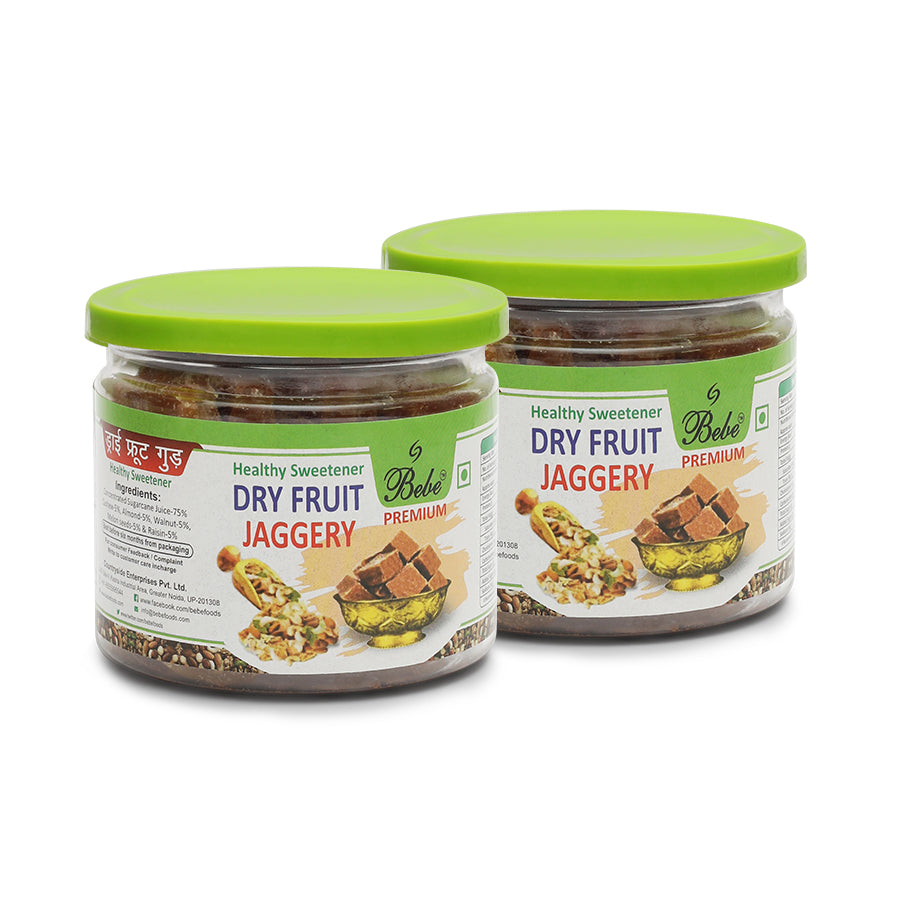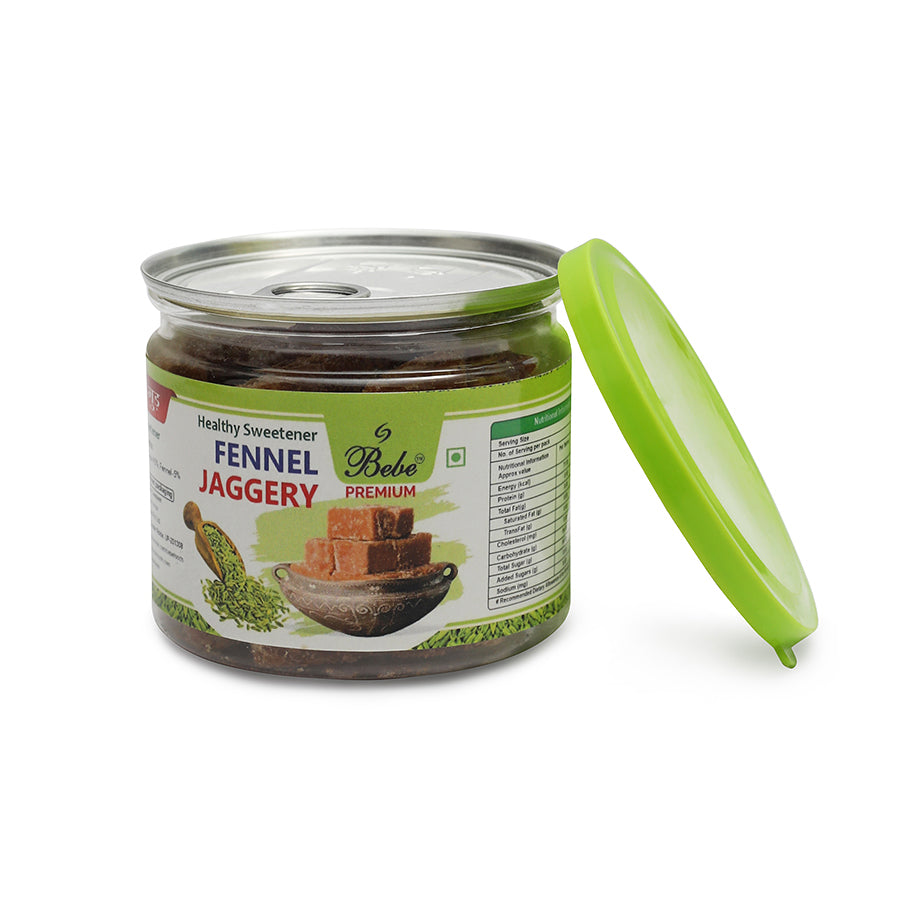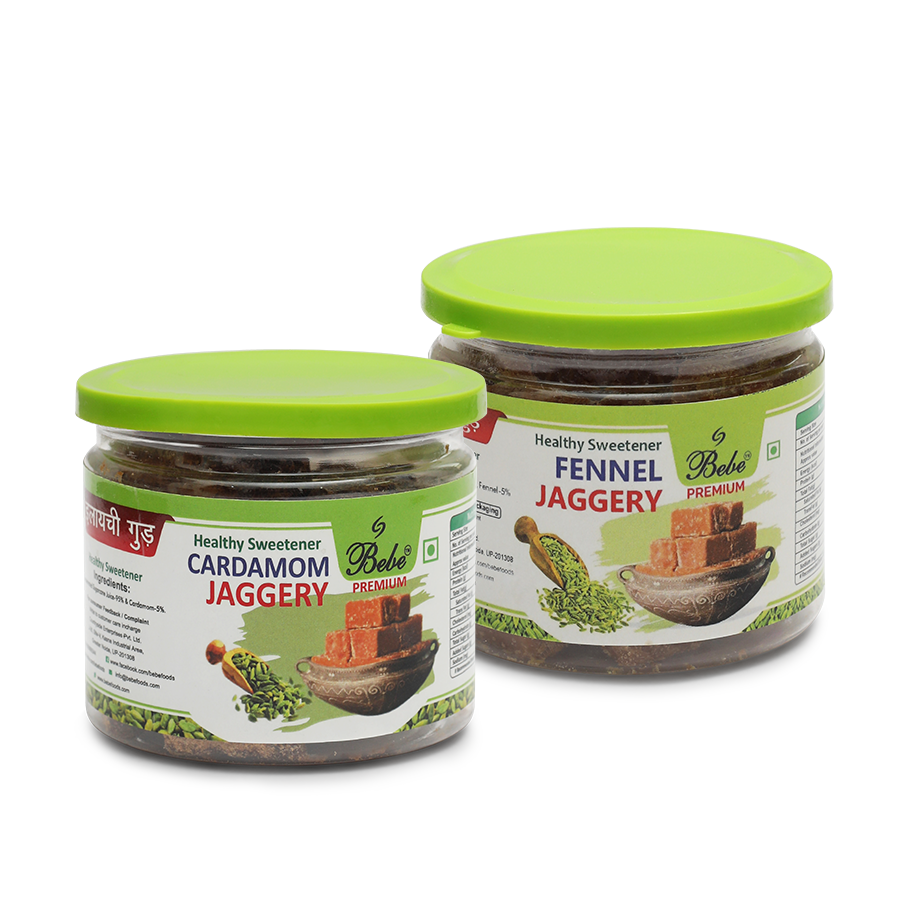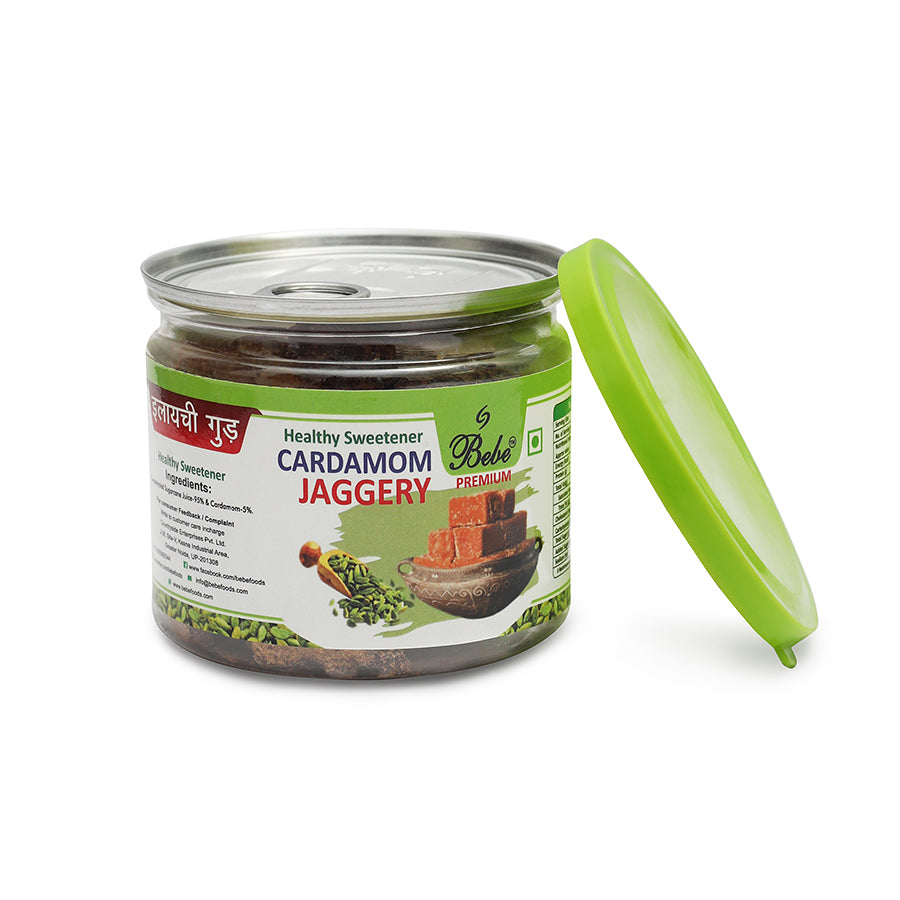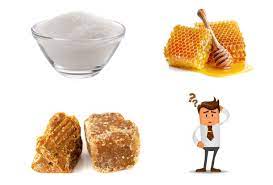
Jaggery vs Sugar vs Honey: Choose Healthier One

In a world that thrives on sweetness, the choices for satisfying our cravings are abundant. Sugar, jaggery, and honey stand as the prominent contenders in this sugary realm. While all three offer a delightful sweetness, they each come with unique properties, nutritional profiles, and potential health implications. This comprehensive article delves into the nuances of sugar, jaggery, and honey, exploring their production processes, nutritional value, health benefits, and drawbacks.
Sugar: The Ubiquitous Sweetener
Sugar, derived primarily from sugarcane or sugar beets, is a refined carbohydrate composed of sucrose. It is widely available and used in various forms, including white granulated sugar, brown sugar, and powdered sugar.
Production: Sugar production involves extracting juice from sugarcane or sugar beets, purifying it, and then crystallizing it. White sugar undergoes extensive processing, including refining and bleaching, to achieve its pure white appearance.
Nutritional Value: Sugar is essentially pure calories, devoid of significant nutrients like vitamins or minerals. It is a source of quick energy due to its high glycemic index, which causes a rapid spike in blood sugar levels.
Health Implications: Excessive sugar consumption has been linked to various health problems, including obesity, type 2 diabetes, heart disease, and dental cavities. It can also disrupt gut health and contribute to inflammation in the body.
Jaggery: The Traditional Sweetener
Jaggery, also known as gur, is an unrefined sugar product made from sugarcane or palm sap. It retains some of the molasses, giving it a characteristic dark brown color and a unique flavor profile.
Production: Jaggery production involves boiling down sugarcane juice or palm sap until it thickens and solidifies. It is then molded into blocks or sold in granular form.
Nutritional Value: Jaggery contains trace amounts of minerals like iron, calcium, and magnesium. It also boasts a lower glycemic index than refined sugar, meaning it causes a slower and more gradual rise in blood sugar levels.
Health Implications: Jaggery is often touted as a healthier alternative to refined sugar due to its mineral content and lower glycemic index. However, it is still a form of sugar and should be consumed in moderation. Excessive intake can contribute to the same health problems associated with refined sugar.
Honey: The Natural Sweetener
Honey is a natural sweetener produced by bees from the nectar of flowers. It boasts a unique flavor profile and is available in various types, each with its own distinct characteristics.
Production: Bees collect nectar from flowers and store it in their honeycombs. They then fan their wings to evaporate the water content, creating a concentrated and viscous liquid.
Nutritional Value: Honey contains trace amounts of vitamins, minerals, and antioxidants. It is also a source of fructose and glucose, two types of sugars. The specific nutritional composition of honey can vary depending on the floral source and processing methods.
Health Implications: Honey has been used for centuries for its potential health benefits. It is believed to possess antibacterial and anti-inflammatory properties. Some studies suggest that honey may help soothe coughs and sore throats. However, it is essential to consume honey in moderation due to its sugar content.
Making an Informed Choice
While Sugar, Honey & Jaggery offer a tempting sweetness, their impact on health couldn't be more different. Let's delve into the world of Jaggery and uncover its multitude of benefits while exposing the detrimental effects of refined sugar.
Jaggery: A Nutritional Powerhouse
Derived from the sap of sugarcane or palm, jaggery is an unrefined sweetener that boasts an impressive nutritional profile. Unlike refined sugar, which is stripped of all nutrients during processing, jaggery retains essential minerals like iron, calcium, magnesium, and potassium. These minerals play vital roles in maintaining bone health, supporting the nervous system, and promoting overall well-being.
Beyond minerals, jaggery also contains antioxidants that help combat oxidative stress and protect the body against cellular damage. Additionally, it is a good source of fiber, which aids digestion and promotes gut health.
Sugar: The Sweet Saboteur
Refined sugar, on the other hand, is a nutritional wasteland. It is devoid of any vitamins, minerals, or fiber, offering nothing but empty calories. This refined carbohydrate quickly spikes blood sugar levels, leading to energy crashes and cravings.
Excessive sugar consumption has been linked to numerous health issues, including obesity, type 2 diabetes, heart disease, and dental problems. It can also disrupt gut bacteria, contribute to inflammation, and negatively impact mood and energy levels.
Jaggery: A Healthier Choice
When compared to refined sugar, jaggery shines as a healthier choice for satisfying your sweet cravings. Its lower glycemic index means it releases energy slowly, preventing blood sugar spikes and crashes. This makes it a suitable option for individuals with diabetes or those looking to manage their blood sugar levels.
The iron content in jaggery is particularly beneficial for women and individuals with iron deficiency anemia. It aids in red blood cell production and prevents fatigue. Jaggery's magnesium content helps relax muscles and nerves, while calcium supports bone health.
Moreover, jaggery is believed to possess several medicinal properties. It is traditionally used to soothe coughs, relieve constipation, and boost immunity. It is also considered a warming food in Ayurveda, making it suitable for consumption during colder months.
Honey: A Symphony of Flavors and Benefits
Honey is a sweetener that contains enzymes, antioxidants, vitamins, and minerals, all of which contribute to its unique properties. The antioxidants in honey, such as flavonoids and phenolic acids, help neutralize harmful free radicals in the body, protecting cells from oxidative damage. Additionally, honey has been used for centuries for its antibacterial and anti-inflammatory properties, making it a popular remedy for coughs, sore throats, and minor wounds. So, in the battle between honey and refined sugar, honey clearly reigns supreme. Its unique flavor profile, abundance of beneficial compounds, and lower glycemic index make it a superior choice for satisfying your sweet cravings without compromising your health.
Making the Transition
Swapping refined sugar for Honey & Jaggery in your diet can be a delicious and rewarding endeavor. Start by replacing sugar with honey or jaggery in your beverages, such as tea, coffee, and smoothies. Experiment with using Jaggery powder in your cooking and baking, adjusting recipes as needed to account for its unique sweetness and flavor.
Ultimately, the choice of sweetener is a personal one. By understanding the nuances of each option and considering your individual needs and preferences, you can make an informed decision and enjoy sweetness in moderation. Remember, a balanced and mindful approach to sweeteners is key to maintaining a healthy and happy lifestyle.
If you are looking for high quality, naturally flavoured Jaggery in market then look no further and order today from Bebe Foods via their website www.bebefoods.com and start with choosing a healthier lifestyle.


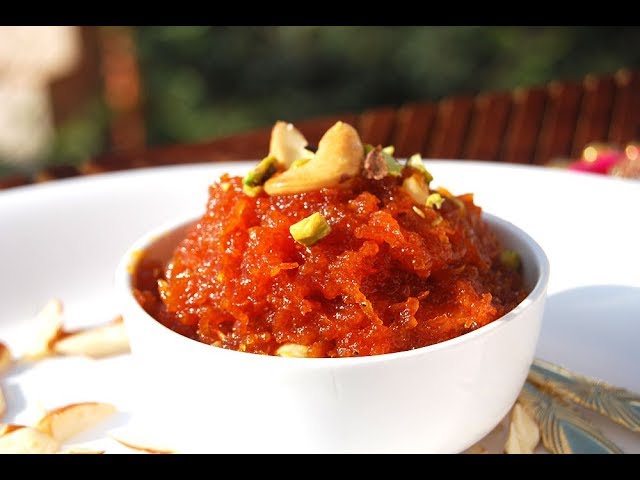




![Bebe Jaggery Sachets 600g, [150g x 4 packs]](http://bebefoods.com/cdn/shop/files/1.jpg?v=1717235899)
![Bebe Jaggery Sachets 600g, [150g x 4 packs]](http://bebefoods.com/cdn/shop/files/2.jpg?v=1717235899)
![Bebe khand Sachets 600g [150g x 4 packs]](http://bebefoods.com/cdn/shop/files/2_65987286-ab77-44db-9cae-69ac50e920a4.png?v=1750527284)
![Bebe khand Sachets 600g [150g x 4 packs]](http://bebefoods.com/cdn/shop/files/4_295f1632-1a69-4fcb-aa69-1172c2928b52.png?v=1750527252)
